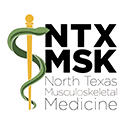Posted in: back pain | Posted on: 14-Mar-2017 | No of views: 4344 The majority of individuals (about 65%) experience some form of low back pain at some point in their lives, making this condition second only to upper respiratory illness as a cause for visiting a physician.1,2The low back is a complex network of spinal muscles, nerves, bones, discs and tendons in the lumbar spine that move together interdependently. Keeping this system mechanically aligned and held snuggly together allows for healthy function and pain-free movement. 3
Read more

